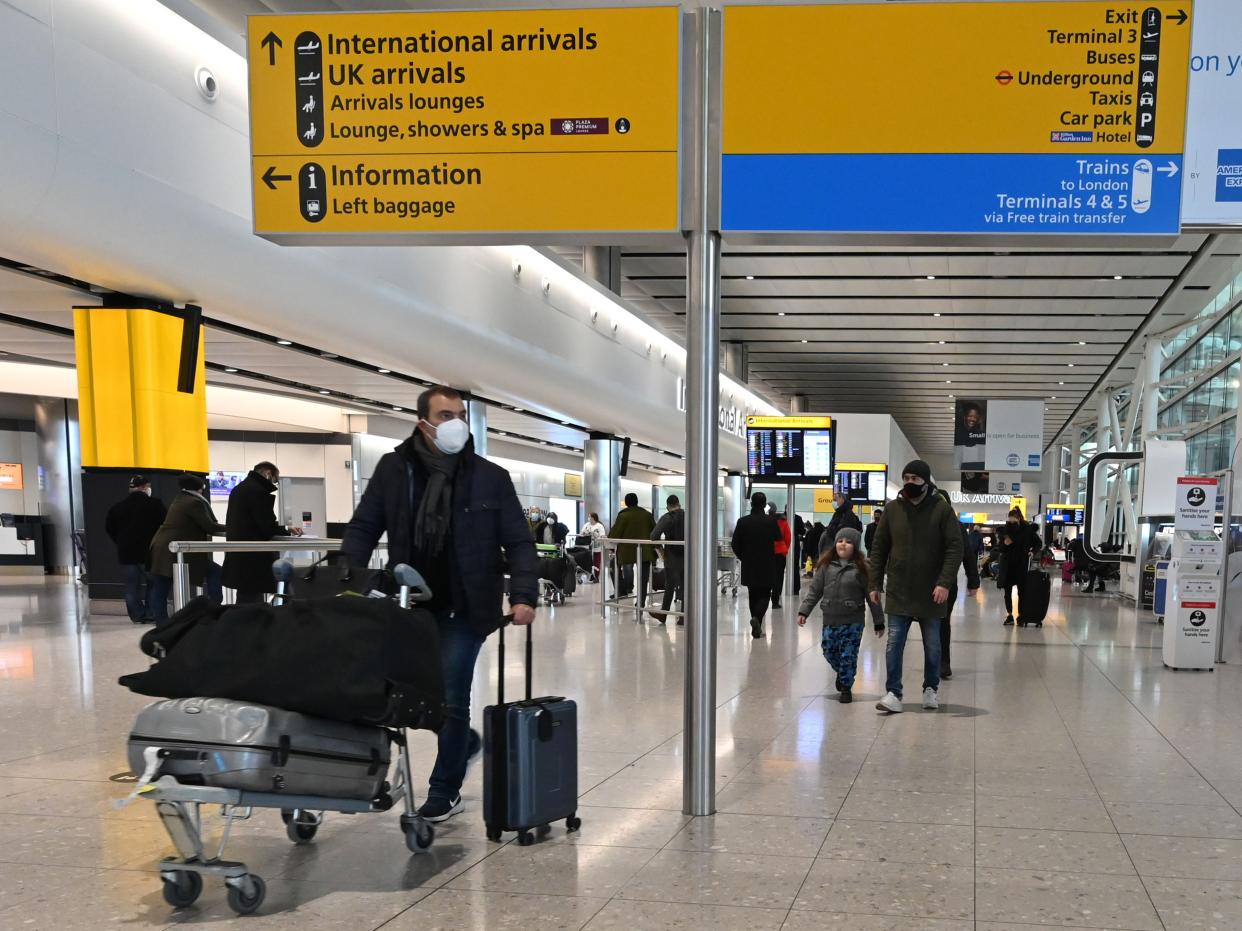Covid: How are authorities searching for missing person infected with Brazil variant?

- Oops!Something went wrong.Please try again later.
Health officials are hunting for a person in the UK who is infected with the worrying coronavirus variant first detected in Brazil.
The sample provided by the individual has tested positive for the variant, known as P1, but authorities have been unable to determine their identity and whereabouts.
It’s thought the missing person used a home testing kit on 12 or 13 February, but did not complete their registration form properly.
In total, Public Health England has identified six cases of the P1 variant – three in England and three in Scotland.
What is being done to locate the missing person?
Dr Susan Hopkins, strategic response director at Public Health England (PHE), said officials were working alongside postal and courier services to examine where the individuals’ test “may have been sent from and to”.
It’s believed the infected person has yet to receive their test results. As a result, the government has put out a public appeal urging anyone without a result from a test on 12 or 13 February to come forward by calling 119.
Vaccines minister Nadhim Zahawi said it was not known whether or not the missing individual had recently been abroad, so it was not clear if they would have been self-isolating while they were infected.
When asked why their test could not be traced back to where it had taken place, he told the BBC: "Part of the reason is because if they have had a home test kit or a test given to them by the local authority, they have to fill in this test card for their details.
"That is the reason that we think they haven't been identified in the same way as a PCR test would do.
"We are working with several data points to try and locate them, not least, of course, to try and highlight anyone who has had a test on 12 February to come forward if they haven't had a result."
What about the other cases?
Three cases are Scottish residents who flew to Aberdeen from Brazil via Paris and London, who all tested positive while self-isolating.
Other passengers who were on the same flight to Aberdeen are now being traced.
The other two cases in England are from the same household in south Gloucestershire after one person returned from Sao Paulo on 10 February – just days before the government's hotel quarantine rule came into force.
Two other people in the same household have also tested positive but are not currently included in the UK case total of six, with tests ongoing into the cause of their infection.
Addressing the two confirmed cases, Mr Zahawi said: "They did take a pre-departure test and filled in their passenger locator form, which is why we are able to deal with them so effectively and work with South Gloucestershire Council.
"There is minimal reason to believe that there may be further spread because they have been isolating correctly.”
Nonetheless, surge testing will now be carried out in the Bradley Stoke, Patchway and Little Stoke areas of south Gloucestershire to capture any potential transmission.
Officials are also searching for passengers who were on the Swiss Air flight LX318 from Sao Paulo to Heathrow, via Zurich, which landed on 10 February.
What do we know about the P1 variant?
The variant drove a large second surge in cases that swept across the Brazilian city of Manaus, which was initially thought to have acquired high levels of immunity having been hit hard during the first peak.
This suggests that P1 can cause reinfection in people who have been previously exposed to Covid-19, experts believe.
"Manaus in particular reported that a number of individuals were reinfected with this variant, and therefore that suggests that having had prior immunity from primary infection wasn't enough to reduce infection and transmission. And that may also impact on the vaccine,” Dr Hopkins said.
Like the South African variant, it carries the E484K mutation in its spike protein – the part of the virus responsible for attaching to human cells – and is therefore capable of partially evading the body’s neutralising antibodies.
This suggests P1 could diminish the effectiveness of the current generation of Covid-19 vaccines, though studies have suggested they will continue to provide protection against severe illness, hospitalisation and death – regardless of the variant that has caused the infection.
P1 also has the same the N501Y mutation seen in the highly transmissible UK variant; however, it’s unclear if it is capable of spreading as easily.
Dr Hopkins said that although cases have been detected in the UK, it is hoped that it would not become a dominant variant.
"I think the importance here is that, while we're in national restrictions, while we have very transmissible variants that are circulating, then we hope that there are not any other variants that will be able to take over," she said.
"However, as we start to release national restrictions with the schools going back on March 8, that is where the risk starts to increase, and that's why we really are clamping down on a number of measures to prevent the spread of these variants."
Read More
First cases of ‘concerning’ Brazil Covid variant detected in UK
What is the new Brazil Covid variant? Everything we know so far

